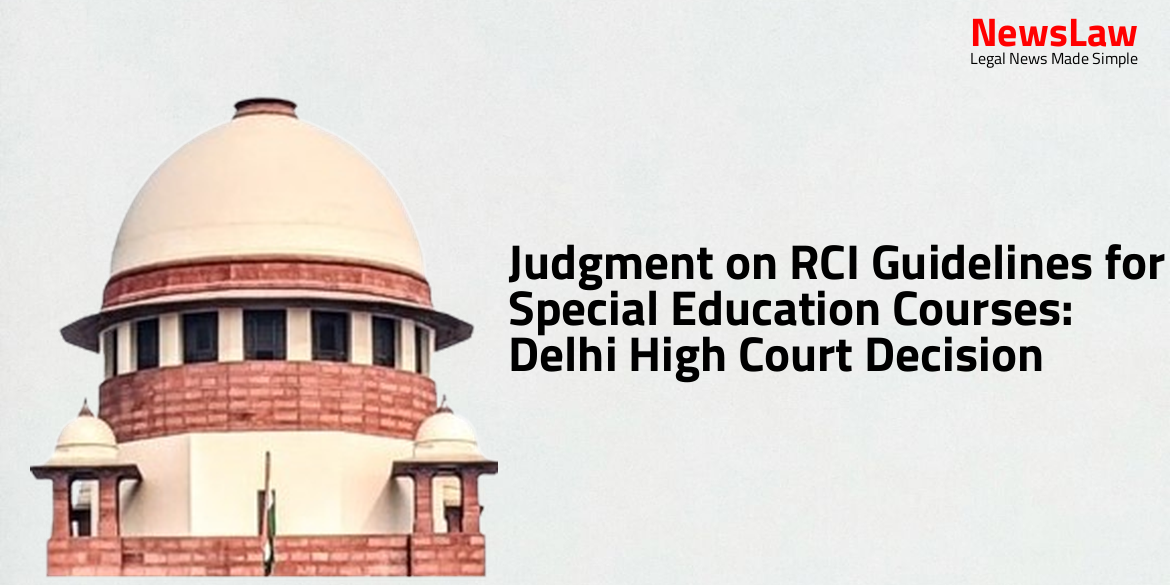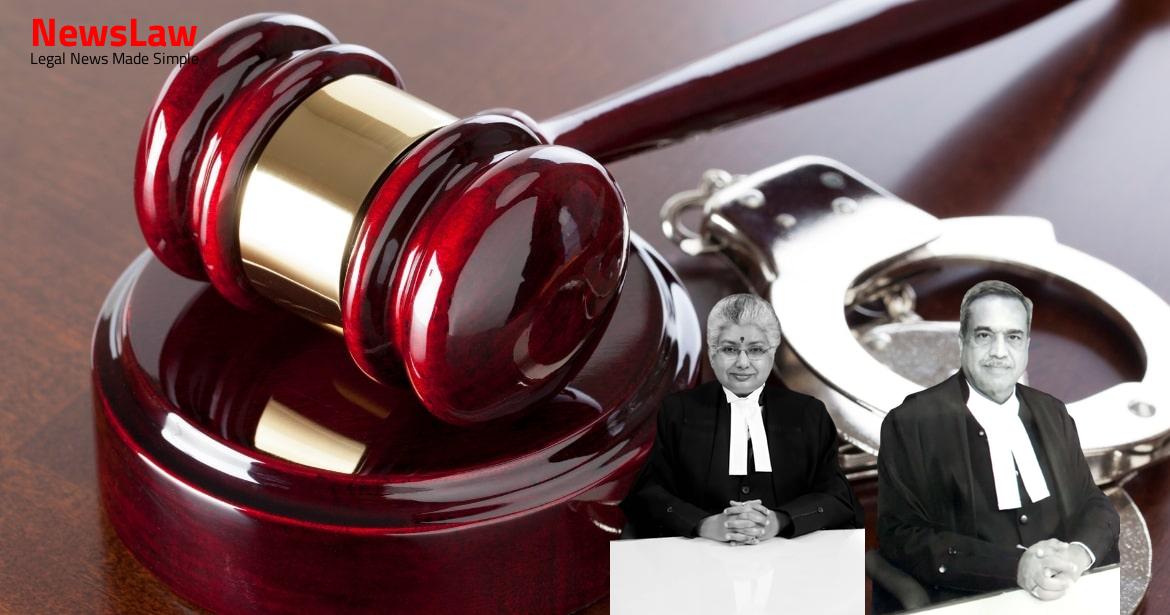The High Court delves into the intricate legal framework surrounding disability compensation under maritime law. The case involves a seaman’s claim rejected by the Shipping Corporation of India, raising pivotal questions on what constitutes an ‘injury’ and the threshold for disability compensation. The court’s analysis scrutinizes the causal connection between the appellant’s medical condition and his employment at sea, shedding light on the complexities of interpreting relevant clauses. Join us as we unravel the nuances of this legal saga in the maritime realm.
Facts
- The appellant challenges the judgement rejecting the seaman’s claim for disability compensation under the National Maritime Board Agreement.
- The High Court of Judicature at Patna upheld the Shipping Corporation of India’s decision that the appellant’s case was not a result of accidental injury during duty on the vessel.
- According to SCI, only severance compensation is payable as the seaman is capable of performing other jobs and his day-to-day work is not affected.
Also Read: Supreme Court Judgment on Single Till Mechanism for HRAB Calculation: A Comprehensive Analysis
Arguments
- The appellant argues that injury does not need to be external or involve blood oozing, but can also cover an impaired heart.
- Counsel relies on articles on Marine Safety by Mr. Dilipan Thomas and Mr. Markas Ollie Barker warning seafarers about cardiovascular diseases as occupational hazards.
- The appellant contends that the SCI’s failure to provide an alternative job suitable for his medical condition violates the Disability Act.
- Refuting the appellant’s argument, Mr. Suri states that Dilated Cardiomyopathy is not mentioned in the Disability Act, hence an alternate job cannot be claimed under the Act.
- The temporary nature of the appellant’s engagement as a freelance seafarer and his contractual agreement is highlighted, stating that Dilated Cardiomyopathy should be understood as an internal injury under the Agreement.
- The appellant was previously registered in SCI’s offshore fleet service but transferred to the foreign-going seaman’s roster. The Senior Counsel argues that the seaman is entitled to 100% disability compensation under the Agreement.
- The SCI’s counsel argues that the appellant did not suffer any accidental injury during the sea voyage on the vessel, and therefore, the claim for disability compensation was rightly rejected.
- It is argued that the Claimant’s heart condition does not qualify as an ‘injury’ under Clause 5.9.F (ii) of the Agreement.
- The SCI’s counsel asserts that the appellant, being declared medically unfit for sea service, falls under Clause 25 instead of Clause 21 which applies to cases of 100% disability during employment.
- The SCI’s counsel argues that while the appellant may be unfit for seaman’s duty, he may still be 100% fit for another general job. The term ‘injury’ should encompass anything impairing the appellant’s health.
- The rejection of disability compensation was based on the lack of a proximate connection between the seaman’s work on the vessel and his medical condition.
- The SCI noted that the seaman did not become incapacitated due to an accidental injury on the vessel, as required by relevant clauses for disability compensation.
- The Court recognized that reduced blood pumping capacity of the heart could be an occupational disease of a seafarer but stated that 100% incapacity during employment on the vessel is necessary for disability compensation.
- The High Court reviewed literature referenced by the appellant in challenging the SCI’s rejection order.
- The ASG argued that there was no causal connection between the claimant’s medical condition and his employment on the sea-going vessel, attributing the medical condition to excessive liquor consumption unrelated to the seaman’s work.
Analysis
- The appellant did not suffer any accidental injury during his ship duty.
- The Dilated Cardiomyopathy condition of the appellant cannot be linked to his short-term engagement at sea.
- The appellant’s heart ailment does not qualify as a disability under the Disability Act.
- The court emphasized the need for establishing a causal connection for considering compensation under the Workmen Compensation Act, which was absent in the appellant’s case.
- The medical condition of the appellant could not be linked to his engagement at sea.
- The term ‘injury’ should not be construed to encompass any health status diminishment of a seaman.
- The Dilated Cardiomyopathy condition does not hinder the appellant’s full and effective participation in society, hence not qualifying as a disability under relevant Acts.
- No material was presented to correlate the appellant’s impaired heart function with his ship engagement.
- The appellant’s case does not fall under Clause 21 for disability compensation as it does not impede his day-to-day affairs.
- The High Court found no basis to overturn the rejection of the claim for Disability compensation by the SCI.
- Employees who are rated as medically unfit for sea service due to injury while in employment are entitled to 100% compensation.
- This clause is included in the National Maritime Board Agreement.
- It governs the rights and obligations of the parties involved in maritime employment.
- Severance compensation is to be paid to Ratings declared permanently medically unfit for sea service after 5 years on the Company’s roster.
- Compensation amount varies based on the age of the Rating: below 55 years, between 55 to 58 years, and above 58 years.
- Compensation is calculated based on months of Basic Wages per year of service and has minimum thresholds based on age.
- The provision of severance compensation does not apply to cases covered under Death and Disability Compensation as per Clause 21 of the agreement.
- Clause 25 outlines that the National Maritime Board Agreement governs the terms and conditions of a seaman, resulting from collective bargaining between the Indian Ship Owners Association and the Seafarers’ Union.
Also Read: Selection and Appointment of Judicial Officers in Himachal Pradesh
Case Title: NAWAL KISHORE SHARMA Vs. UNION OF INDIA GOVERNMENT OF INDIA THROUGH SECRETARY (2021 INSC 73)
Case Number: C.A. No.-000150-000150 / 2021



